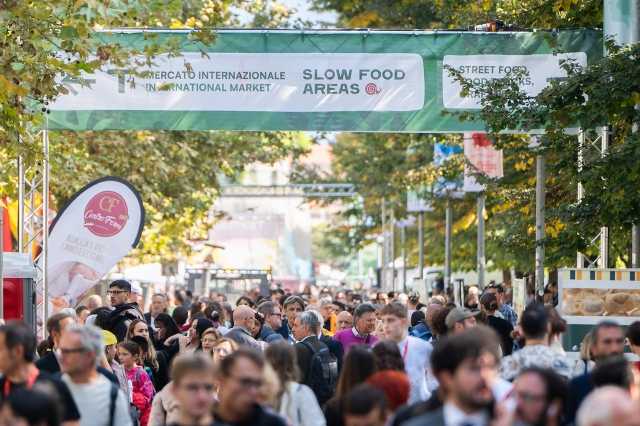Share your coffee stories with us by writing to info@comunicaffe.com.
TURIN, Italy – “What can we do to change food systems, to make them better? Each one of us can play a role, whether we are individual citizens, in decision-making positions, or running businesses, as change can only happen if we are all on board. Take food to reconnect to one another and change food systems for the better and for everyone”, states Marta Messa, Secretary General of Slow Food: “Think about how Terra Madre is key in tie relationships and new ways of collaborating. Multitudes of people across our planet are coming together here in Torino to create change from the bottom and to challenge a global economic order that preys on the weak and wages war against nature every day, ruthlessly exploiting human and natural resources”.
At a European level is now more important than ever to strengthen the advocacy work, especially as agri-food industrial multinationals are exerting all their influence and lobbying power to counter the pressing need for a genuine ecological transition, based on agroecology.
Nina Wolff, Slow Food Board member from Germany, explains why decisions taken in EU can have heavy consequences: “We must make sure that our way of producing and consuming food in Europe and the global North doesn’t impact in a bad way the countries of the global South. It is a matter of fairness. We try to make sure, for instance, that pesticides that are prohibited in the global North and within the EU, can’t no longer been exported to the global South for good reasons: they are bad for pollinators, for insects in general and for our ecosystems; we have to protect people over there in the same manner that we do it in the EU.”
The discourse then shifts to the right to food, food sovereignty understood in its true meaning of solidarity, not competition, and building a more just world from the bottom up.
Marta Messa: “For us the right to food means a nutrition which is slavery-free, respectful of the environment, animals, and of current and future generations. Especially when referring to produces, we all have to make sure they have access to land, seeds, water, to keep the important work that they do”.
And yet, at Terra Madre we’ve heard from the Slow Food Indigenous Peoples’ Network who are fighting against land and water grabbing.
“My name is Dai Kitabayashi, I’m part of the Ryukyus Indigenous community, Japan. After the battle in Okinawa in World War II, our land has been grabbed by military forces and the access to the sea has been violated. And now in that, the presence of military forces contaminates our water and that affects our food and we’re fighting to get it back”.
From Brazil, Jailson Jacinto Pereira Juruma, leader of the Juruma Indigenous Community echoes back: “The Juruma are fighting against the Belo Sun mining project which would restrict their access to the Xingu River and likely contaminate the water with chemicals. The Xingu River is very important for our people in the area of Para. The river is our mother and our father, it provides us with food, and water to drink and it sustains our souls”.
Elizabeth Atieno Opolo, food campaigner for Greenpeace Africa, concludes: “Currently there are two pressing challenges in Africa, one is the culprit capture of the African food system and then the second one is the climate crisis that we are seeing affecting local communities. So when we talk about the culprit capture of the African food system, it’s where we are seeing economic development models, but they are just basically focusing on food security, instead of ensuring food sovereignty of these communities”.
The photo and video collection related to the Slow Food Farms program was produced in collaboration with TerraProject Photographers.
The 2024 edition of Terra Madre Salone del Gusto is made possible thanks to institutions and private entities that have already confirmed their support to date, including Main Partners: Turin Chamber of Commerce, Demeter, Iren, Lavazza Group, Pastificio Di Martino, Quality Beer Academy, Reale Mutua, UniCredit. Inkind, Green, Area, Hospitality, Cultural Partners, and Supporters are listed here.















